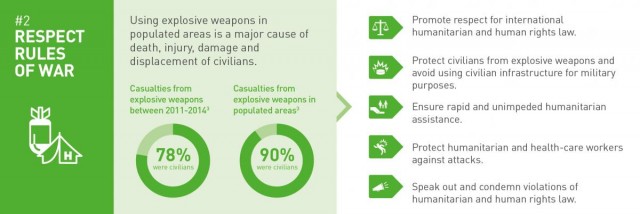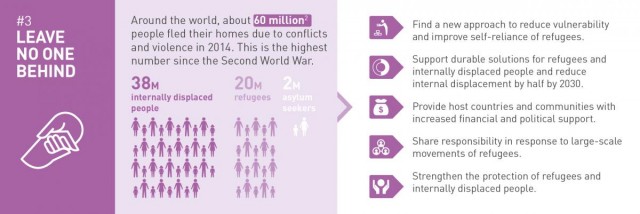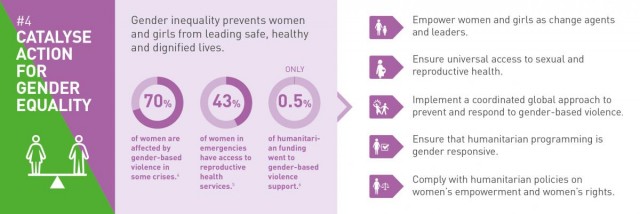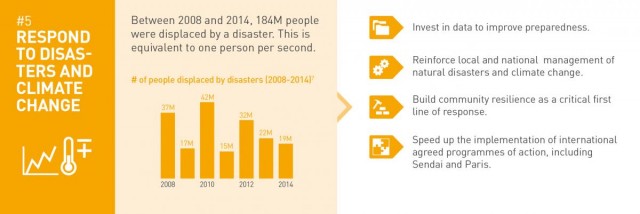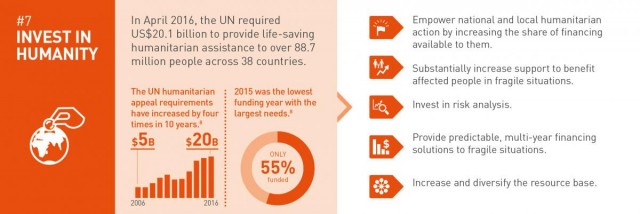World Humanitarian Day 2016
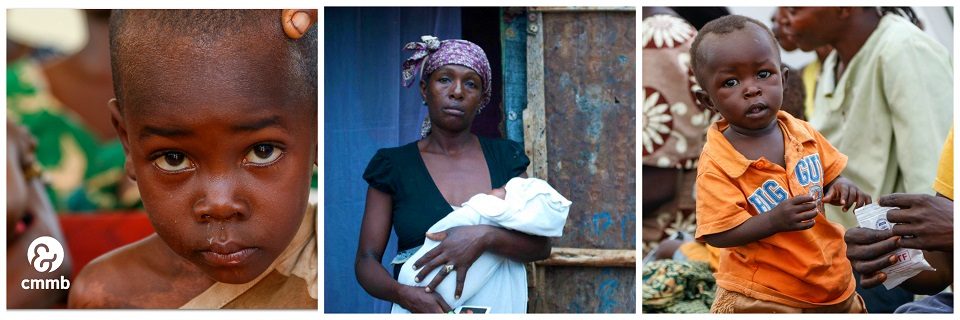
Love and compassion are necessities, not luxuries. Without them humanity cannot survive. (Dalai Lama)
Friday, August 19th is World Humanitarian Day. It is an annual reminder of the need to act to alleviate suffering and a day we are called upon to honor humanitarian workers and volunteers toiling on the frontlines of world crises.
Unfortunately, on this World Humanitarian Day, the globe is experiencing multiple humanitarian crises at once with the highest level of human suffering since World War II. We are witnessing the displacement of humans at a magnitude never before seen, equal to 42,500 people being forced to flee their homes because of conflict and persecution every day. We see outbreaks of cholera and yellow fever due in large part to the lack of access to safe water, sanitation and healthcare. Then, there is the emergence of ‘new’ viruses like Zika where no vaccines exist. Disproportionately, the greatest suffering is happening to people who already live in poverty, but it has a global impact.
Our inability to adequately alleviate and prevent the current scale of human suffering is a sad reflection of our collective will. Humanitarian crises in the not-so-distant past were mainly discrete and often isolated occurrences requiring less complex solutions. However, today we are experiencing ‘man made’ as well as natural crises at an alarming frequency and magnitude that are overwhelming our existing ability to anticipate and respond adequately.
In a sense, it is like trying to use a flip phone to stream videos. Our existing institutional responses are woefully inadequate and outdated, political will is weak and innovative solutions are seldom given a chance to succeed.
Gone are the days when a particular crisis was “not my problem” and happened far away. The problems of refugees, climate change and health are all interrelated and are experienced by everyone on the planet, with the poor often impacted the most. We should all resolve to value every human life equally and bring our science, political will, resources and creativity to alleviate and prevent massive human suffering.
In response this growing human suffering, UN Secretary-General Ban-Ki Moon has called for humanity to be placed at the center of global decision-making, with five core responsibilities that all world stakeholders are called on to answer.
While these responsibilities are calling directly on major stakeholders – world leaders and people in positions of power – it is a call for all of us to remember that when another person suffers, we all suffer. What we do today will have an impact on someone’s tomorrow.
CMMB refuses to stand by and watch. Our values compel us to take up the universal challenge to change our seemingly weak collective will. Join us in our quest to create a world in which every human life is valued, and health and human dignity are shared by all.
Even if you are not able to join others on the frontlines to alleviate human suffering, you do have the capacity to make a difference.
As we work to create light for others, we naturally light our own way.
— Mary Anne Radmacher
Core Responsibility One:
Global leadership to prevent and end conflict. Preventing conflicts and finding political solutions to resolve them, is our first and foremost responsibility to humanity.
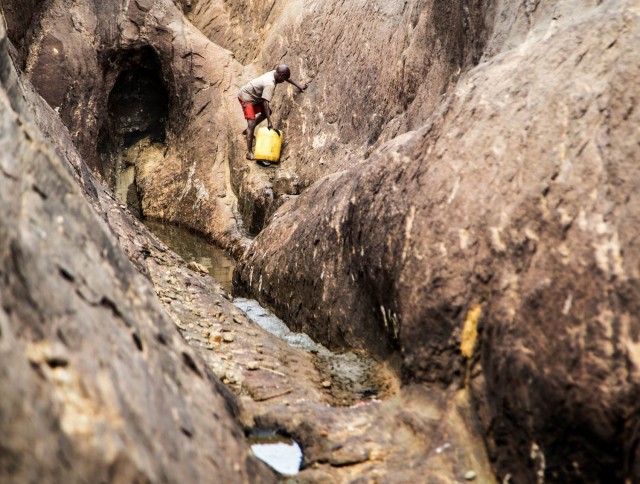
Core Responsibility Two:
Uphold norms that safeguard humanity. Every day, civilians are deliberately or indiscriminately killed in wars. We are witnessing the erosion of 150 years of international humanitarian law. But even wars have limits: leaders must recommit to upholding the rules that protect humanity.
Core Responsibility Three:
Leave no one behind. The World Humanitarian Summit was the first test of our commitment to transform the lives of those most at risk of being left behind. This means reaching everyone and empowering all women, men, girls, and boys to be agents of positive transformation. It means reducing displacement, supporting refugees and migrants, ending gaps in education, and fighting to eradicate sexual and gender-based violence.
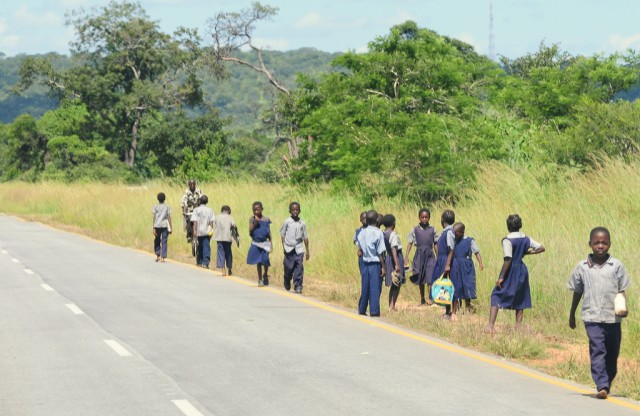
Core Responsibility Four:
Change people’s lives– from delivering aid to ending need. Success must now be measured by how people’s vulnerability and risk are reduced, not by how needs are met year after year. Ending need will require three fundamental shifts in the way we work: reinforce, don’t replace national systems; anticipate, do not wait for crises; and transcend the humanitarian-development divide.
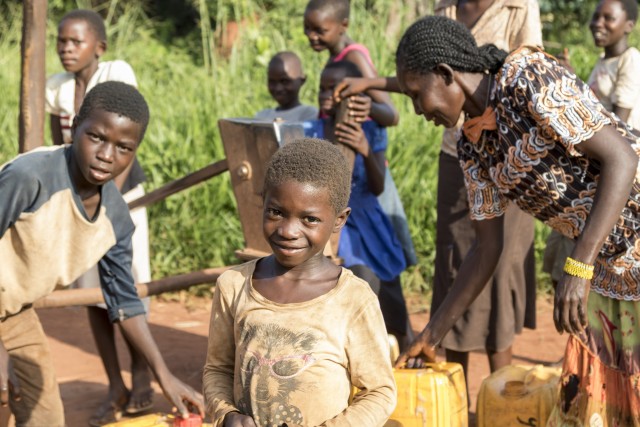 Core Responsibility Five:
Core Responsibility Five:
Invest in humanity. Accepting and acting on our shared responsibilities for humanity requires political, institutional, and financial investments. A shift is needed from funding to financing that invests in local capacities and fragile situations and that incentivizes collective outcomes.
Seven core commitments highlighted in Turkey during the World Humanitarian Summit in May 2016:

